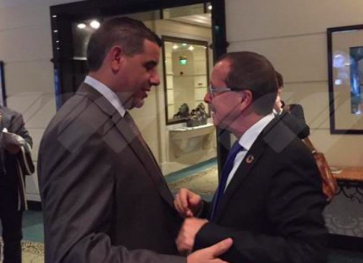By Libya Herald reporter.
Tunis, 19 January 2017:
The mayor of Sebha has told the Libya Herald that the current situation in southern municipalities is “terrible” and listed a litany of problems as constant blackouts continue to hit the region. At best, he pointed out, the power stayed on for two hours in certain municipalities, before cutting out for at least another two days.
Hamed Rafeh also said the power outages had created an environment where criminality could flourish, citing a “huge increase in theft and kidnappings”.
Alongside electricity shortages he also revealed problems with the sewage works and drinking water supplies. Rafeh said this had led to an increase in the deaths of those suffering from kidney problems and a lack of a fully functioning hospital or health centres in Sebha. He also noted disruption to telecommunication services and the non-functioning of food outlets such as bakeries.
“Most public institutions have stopped working, such as banks, schools and service centres. The combination of these problems has affected the lives of all the people in so many ways,” he added.
While Rafeh rejected suggestions the Presidency Council’s Government of National Accord (GNA) had shown a lack of interest towards Fezzan, as alleged on various social media sites, he did say the GNA’s inaction was “expected because the government is weak and unable to resolve such problems.”
He called on it to provide instant aid to support schools, hospitals and security institutions across the south.
The current power situation has wrecked havoc across southern municipalities over the last ten days, with food shortages further exacerbatibg the situation. Ghat, Obari, Murzuk and Sebha have been particularly hard hit, with increasingly regular if small-scale protests taking place in numerous towns.
Presidency Council (PC) head Faiez Serraj yesterday cancelled his trip to the World Economic Forum in Davos so as to remain in Tripoli and continue to find ways to alleviate the energy crisis.








